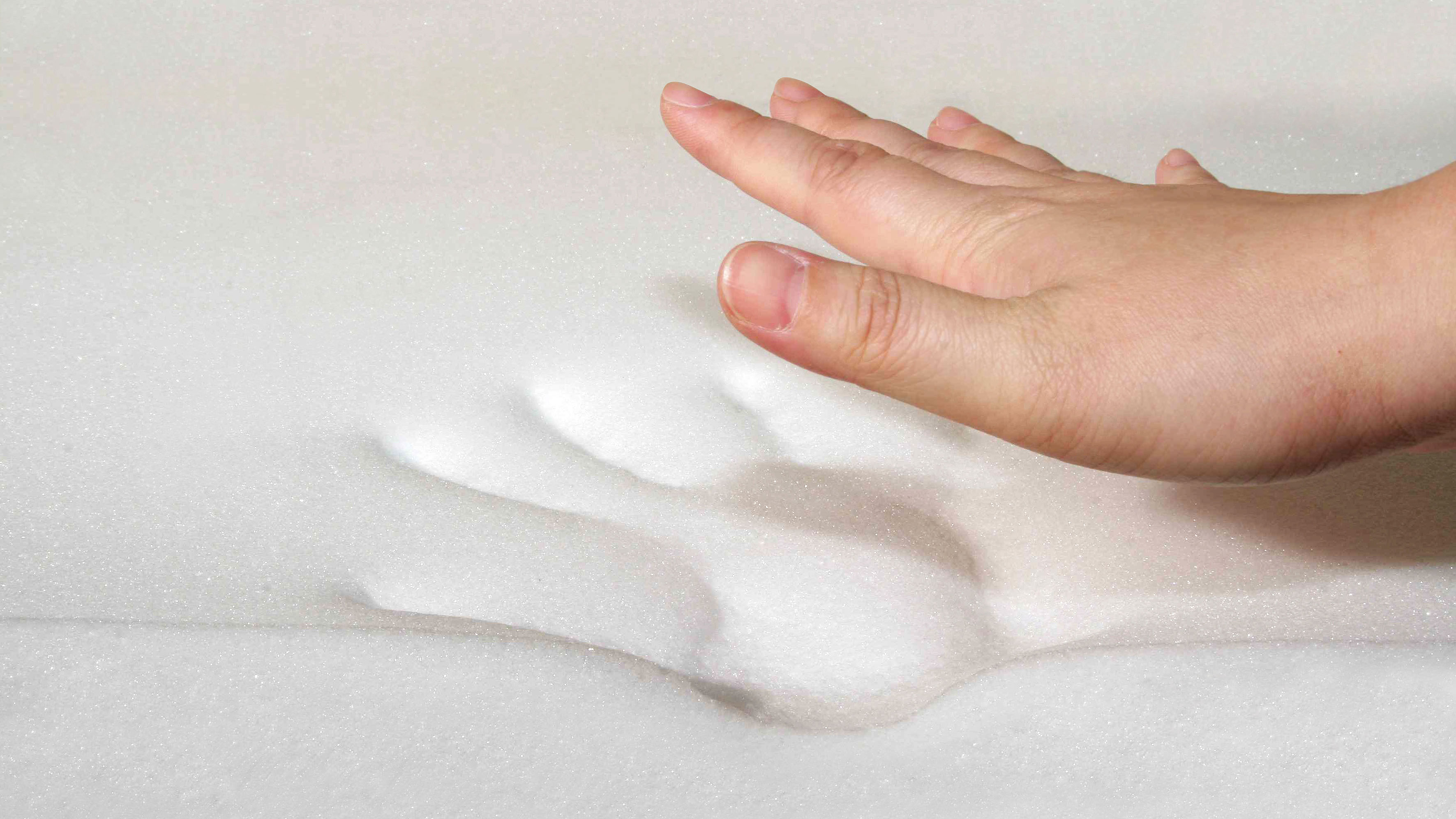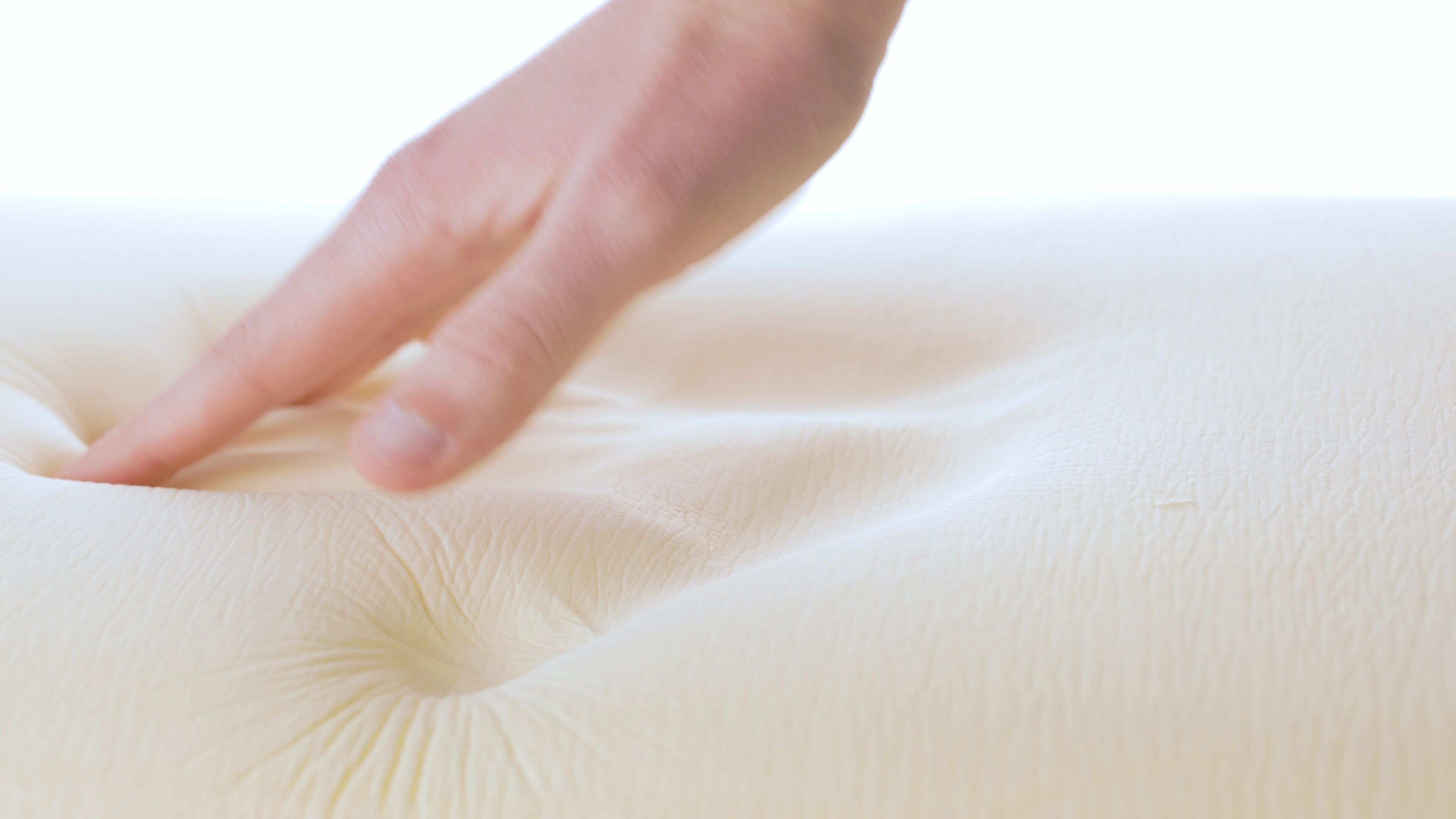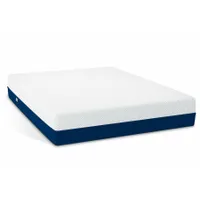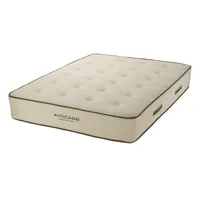Is memory foam toxic in mattresses or healthy to sleep on? We take a closer look
Memory foam adds extra comfort to mattresses and pillows, but is this cushioning material toxic?

Memory foam is a hugely popular mattress material, offering up contouring comfort and a distinctive sink-in feel, but is memory foam toxic or healthy to sleep on? As many eco sleep brands extoll the virtues of fully organic beds free of memory foam, it's normal to start questioning whether this popular synthetic material really is safe.
After all, a large majority of 2024's best mattresses for pressure relief contain memory foam due to its body-hugging properties and ability to vastly reduce pressure points. It's also found in a range of sleep accessories including pillows and toppers. However, are the chemicals used to create memory foam's trademark softness actually toxic and should we really be sleeping on it?
Here we explain what is memory foam and how it's made, plus the benefits and drawbacks of memory foam and whether it's toxic or not. We'll also show you which mattress safety certifications to look for when shopping for a new bed in the Presidents' Day mattress sales.
What is memory foam?
Memory foam is a soft, comfortable material used in multiple products, from shoes to helmets. Since the 1990s, memory foam has become a staple in the mattress and bedding industry, with the memory foam beds being renowned for their cushioning support and the soothing relief they provide to sleepers with joint pain.
The material is a type of polyurethane foam mixed with additives to give it the ability to contour to or 'hug' your body. This means your shape will be indented into the foam when you get up. Memory foam is created by combining polyols (an organic compound) with diisocyanates (another organic compound). Once the mixture forms a chemical reaction, a blowing agent is added to make it expand into foam.

Are memory foam mattresses good?
The best memory foam mattresses have a lot of benefits, particularly for sleepers experiencing back and joint pain. The foam moulds around your shape to cushion and sooth joints, alleviate pressure and tension in the lower back, and evenly distribute your weight for a more comfortable sleep experience.
It's hardly surprising then to find memory foam in the best mattresses for side sleepers, as memory foam beautifully cushions the hips, knees and shoulders (areas which experience the most impact when lying on your side). If you're wondering whether a memory foam mattress is right for you, look out for the 5 signs you should be sleeping on a memory foam mattress, not a hybrid bed.
Get instant access to breaking news, the hottest reviews, great deals and helpful tips.
Is memory foam toxic?
While the two types of organic compound (polyols and diisocyanates) are considered safe, the chemical reactants that make the polyurethane foam can cause health problems. Some of these chemicals include toluene, which can cause breathing problems and skin irritation, and formaldehyde, which can have adverse health affects.
These chemicals can release volatile organic compounds (VOCs) groups of chemicals that can vaporize into air. According to the United States Environmental Protection Agency, these VOCs can cause eye, nose and throat irritation; headaches and loss of coordination; nausea; and damage to the liver, kidneys or central nervous system.
Crucially, most of these harmful chemicals are only present during the manufacturing process and are mostly released by the time they're delivered to you. VOCs may cause some mattress off-gassing (a strong chemical smell) when you unbox a new mattress, but this is generally harmless and usually goes away quickly when the bed is opened in a well-ventilated room.
Some mattress brands, such as Amerisleep and Serta, have also turned to non-toxic, plant-based memory foams. Plant-based memory foams still contain polyurethene, but a percentage of that chemical is replaced with natural elements such as plant-based oils.

What is a CertiPUR-US® certification?
Memory foam beds have come a long way since the 1990s and their production is now more regulated to ensure safer, eco-friendlier foam. For example, the majority of memory foam mattresses are now made without formaldehyde.
When buying a new mattress, there are a number of certifications to look out for that ensure the manufacturer is making mattresses with safe, high-quality foam. One such certification to look out for is the CertiPUR-US certification, which confirms that the foam used in a mattress meets safety and environmental standards by containing no formaldehyde, mercury, lead or other heavy metals.
It also must have low VOC emissions to gain this certification. Thankfully, most of the best mattresses in a box brands are CertiPUR-US-certified, and a full list of CertiPUR-US-certified mattress brands is available online. Other certifications, such as GreenGuard, GOTS, GOLS, and OEKO-TEX Standard 100 also identify non-toxic mattresses.
Are memory foam mattresses toxic?
Generally, memory foam mattresses are safe to sleep on. Most memory foam mattresses today comply with safety and environmental standards, with mattress safety certifications such as CertiPUR-US-certifications and GOTS signalling when a mattress's foam meets certain criteria and is safe for human use.
If you'd rather look for a mattress without memory foam, you can try an innerspring bed or one of best organic mattresses for a completely non-toxic sleep. Many natural mattresses use latex foam, which is hypoallergenic, durable and naturally breathable, but expensive.
Memory foam is also used to make pillows and mattress toppers, and these are safe to sleep on too.
What are the best non-toxic mattresses?
Many non-toxic mattresses are available online, with eco luxury brands such as Avocado and Awara priding themselves on manufacturing beds made from clean, natural materials. Here are our top three picks for the best non-toxic mattresses, all as tried and tested by our panel of sleep experts:
AS3 Hybrid mattress: from $1,699 $1,249 at Amerisleep
Made using Amerisleep's very own plant-based memory foam called Bio-Pur, the AS3 is non-toxic and fiberglass-free. In our AS3 mattress review, we found this bed bed's medium feel to be ideal for side sleepers, while the excellent temperature regulation kept our reviewers cool and refreshed. Currently, you can save $450 off all sizes of this mattress, with a queen now $1,299 (down from $1,499). Other benefits include 100-night sleep trail, a 20-year warranty and free shipping and returns.
Birch Natural mattress: from $1,498 $1,199 at Birch Living
Thanks to its good value for price, temperature control and firm yet bouncy support for combination sleepers, the Birch Natural was deemed an excellent non-toxic bed in our Birch Natural mattress review. Right now, a 20% discount knocks a queen size down to $1,699, and benefits include a 100-night sleep trial and a 25-year warranty.
Avocado Green mattress: from $1,399 $1,259 at Avocado Green Mattress
The Avocado Green is one of the best mattresses for back sleepers thanks to its ultra firm feel. In our Avocado Green mattress review, we praised its excellent quality and sturdy support for heavyweight and stomach sleepers, and we also found it sleeps cool. Currently, you can get up to 20% off this organic mattress with an Avocado mattress deal, taking a queen size down to $1,799. You also get a 1-year trial, a 25-year warranty and free shipping.

Frances Daniels is a PPA-accredited journalist and Sleep Staff Writer at Tom's Guide with an MA in Magazine Journalism from Cardiff University. Her role includes covering mattress and sleep news and writing sleep product reviews and buyer's guides, including our Best Hybrid Mattress 2025 guide. She is interested in the relationship between sleep and health, interviewing an array of experts to create in-depth articles about topics such as nutrition, sleep disorders, sleep hygiene, and mattress care. She is also our specialist on mattress toppers — producing bed topper reviews and taking care of our Best Mattress Toppers 2025 guide — and leads content relating to fiberglass-free beds for a non-toxic sleep. Outside of Tom's Guide, she has written for Ideal Home and Marie Claire.
 Club Benefits
Club Benefits








